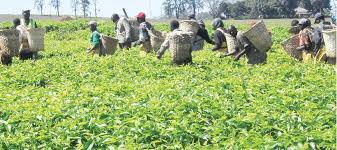
Players in the tea industry are faulting unreliable power supply as one of the major factors leading to a decline in the volumes of tea produced over the years.
At the peak of production, Malawi grew 52 million kilogrammes of the crop but production has since gone down to 41 million kilogrammes.
Tea Association of Malawi (Taml) Chairman, Sangwani Hara, said the sector is now forced to run its production on diesel generators to keep up with the demand on the market.
We have invested in diesel generator sets worth over $3.5 million over the past two years to take care of the power outages. This has seen an increase in cost of production by $0.10 per kilogramme,” he said.
Hara sad power is a critical factor of production in the tea sector as every crop produced has to be processed.
However, Hara said, despite these challenges, the sector is looking at ways of mitigating the challenges.
“We are in business as tea is a long-term crop. But we are still hopeful that the climate cycles will change and we can return to our normal production levels,” he said.
Tea is the country’s second major foreign exchange earner after tobacco and the sector is the largest private sector employer, with over 10,000 employees.
